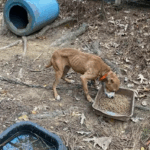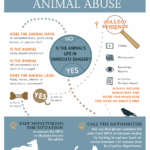Animal cruelty is an insidious issue that permeates various sectors of society, from industrial farming to entertainment. The fight against this pervasive injustice necessitates concerted efforts from compassionate individuals and organizations. One such organization is the People for the Ethical Treatment of Animals (PETA). With a formidable presence in activism, PETA works tirelessly to underscore the importance of animal rights and combat cruelty in multifaceted ways. Understanding the scope of PETA’s endeavors provides valuable insight into the breadth and depth of their commitment to this cause.
At the core of PETA’s mission is an unwavering commitment to animal rights. They advocate for the ethical treatment of all sentient beings, recognizing that animal suffering is detrimental not only to the creatures themselves but also to the moral fabric of society. PETA seeks to eradicate practices that cause undue harm to animals, particularly in industries known for their exploitative methods. Their campaigns often target factory farming, vivisection, clothing production using furs and leathers, and entertainment activities that utilize animals in harmful or demeaning ways.
A prominent aspect of PETA’s activism is its emphasis on public awareness and education. Through impactful campaigns, PETA employs vivid imagery, thought-provoking statistics, and emotive narratives to evoke empathy from the general public. For instance, one of their most recognized campaigns involved comparing the treatment of factory-farmed animals to the suffering experienced by Holocaust victims. While provocative, such comparisons aim to shock viewers into recognizing the severe ethical implications of animal agriculture.
Furthermore, PETA highlights the stark realities of animal testing in the cosmetics and pharmaceutical industries. The organization compiles evidence that not only questions the morality of these practices but also challenges their efficacy. They advocate for alternative testing methods, promoting cruelty-free products to encourage consumers to make ethically informed purchasing decisions. By fostering awareness of the alternatives, PETA strives to shift market dynamics and pressure companies to abandon animal testing entirely.
The organization also champions legislative change. PETA works closely with lawmakers to advocate for stronger animal protection laws. Through lobbying efforts, they aim to establish regulations that mitigate animal suffering in various sectors. Their influence has been pivotal in enacting bans on certain practices, such as the use of wild animals in circuses, which are known for their detrimental effects on both the animals’ physical and psychological well-being.
PETA’s approach extends beyond legislative advocacy. The organization often deploys creative strategies that capture public attention. For instance, they frequently organize demonstrations and public protests that serve as visceral reminders of the cruelty faced by animals. These events not only draw media coverage, thereby amplifying their message, but they also foster community engagement. Activists often wear eye-catching costumes or employ theatrical elements to provoke thought and spark conversations about animal rights.
Social media has become one of PETA’s most potent tools in recent years. Leveraging platforms such as Twitter, Instagram, and Facebook, PETA disseminates information, shares success stories, and mobilizes support for urgent campaigns. Their online presence is marked by sharp, direct messaging that resonates with a younger audience. By using digital storytelling—combining images, videos, and testimonials—PETA captivates individuals who may not have previously considered the implications of animal cruelty.
Despite facing criticism for its bold tactics, PETA’s commitment to its mission remains steadfast. The organization often encounters backlash for its confrontational messaging and high-profile campaigns, yet these strategies have proven effective in galvanizing public discourse around animal rights. The controversy they generate acts as a catalyst, prompting discussions that may lead to greater societal awareness and empathy.
PETA also engages in grassroots initiatives, empowering individuals to speak out against animal cruelty in their communities. Through volunteer programs, members are encouraged to organize local events, distribute educational materials, and engage in direct outreach. This grassroots approach cultivates a sense of ownership among participants, fostering a community of passionate advocates who are equipped to challenge harmful practices and promote awareness.
Moreover, PETA actively encourages the adoption of shelter animals. Through extensive campaigns, they promote spaying and neutering to mitigate overpopulation and animal homelessness. By collaborating with numerous animal shelters, PETA facilitates adoption drives, raising awareness about the plight of homeless animals and advocating for their humane treatment.
PETA’s efforts also encompass collaborations with celebrities and influencers who share their vision for animal rights. Many prominent figures lend their voices to support the cause, participating in campaigns that bring further visibility to animal welfare issues. This strategic alliance not only helps to elevate PETA’s message but also introduces the concept of animal rights to broader audiences, thus recruiting allies from diverse backgrounds.
In conclusion, the multifaceted nature of PETA’s activism illustrates a profound commitment to fighting against animal cruelty across various domains. Through education, advocacy, grassroots efforts, and innovative campaigns, PETA invites individuals to reconsider their relationship with animals and to recognize the value of compassion. Not simply an organization, PETA embodies a movement that seeks to instigate societal change for the betterment of all sentient beings. The path towards eradicating animal cruelty is challenging but essential, and organizations like PETA are at the forefront, championing the voiceless with relentless resolve.





